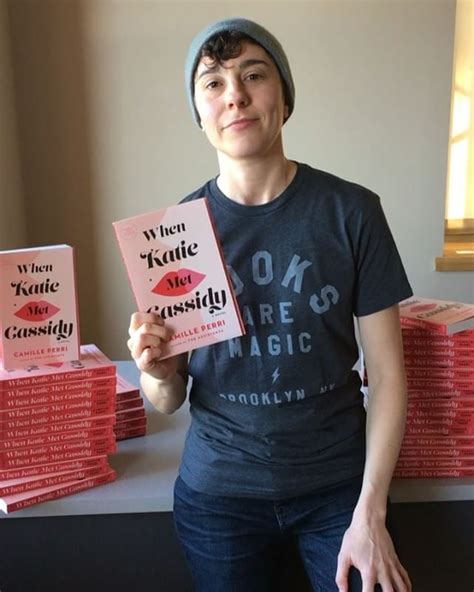A Quote by Mark Goulston
Yes, CEOs are under pressure from all sides, and executives have all sorts of people pushing and pulling at them. But too often, they begin to view and treat their teams, and especially their assistants, as appliances. And a good assistant knows that the last thing their boss wants to hear from them is a personal complaint about anything.
Related Quotes
I was the assistant to the editor-in-chief of 'Esquire Magazine.' And my experience as an assistant was really best case scenario. My boss was absolutely the greatest boss I could have asked for. But I think there's something universal about being an assistant, regardless of whether or not your boss is the greatest or a complete terror.
In theory we understand people, but in practice we can't put up with them, I thought, deal with them for the most part reluctantly and always treat them from our point of view. We should observe and treat people not from our point of view but from all angles, I thought, associate with them in such a way that we can say we associate with them so to speak in a completely unbiased way, which however isn't possible, since we actually are always biased against everybody.
People with the best intentions will often give you advice on why you shouldn’t take a risk because of what could happen. While some of what they say may be true, you should never allow them to get their negative anchors into your mind because, like them, you too will begin to sink. Next time this happens, throw them a life-line, and ask them what is good about their situation.
When people are too present, too familiar or too in our face, something happens to us psychologically. We begin to tune them out, we begin to get sick of them, we begin to know them so well and become so familiar with who they are that we loose a bit of respect for them. You pass a certain threshold with the fact that you're too present in their lives, too much in their face and once that threshold is passed you're never going to repair it they have lost a certain respect for you.
What I've learned from my gurus is that when you hear music, you hear a person, or you hear people, and you hear everything about them in those moments. They reveal themselves in ways that cannot be revealed any other way, and it contains historical truths because of that. To me, that is the most important thing. It shouldn't be a footnote, or the last chapter. It should be the complete thesis about a book on listening.
Too often, when you are close to people in power, you're trying to make them happy; you're trying to tell them what they want to hear. But I find that really good leaders don't want that. They want the truth. And you do them a service, and yourself a service, by just being honest and straightforward.
Nothing is more debilitating than to care about something you can't do anything about. And you can't do anything about your adult children. You can want better for them, and maybe even begin to provide something for them, but in the long run, you cannot do anything about someone else's vibration other than hold them in the best light you can, mentally, and then project that to them. And sometimes, distance makes that much more possible than being up close to them.
If I'm intimidated, I shouldn't be directing a movie. I gotta treat 'em as characters, not as stars. It's hard to not treat Marlon Brando as a legend, a star, it's difficult not to treat Robert De Niro as a star, but that had to go away very fast after I knew them, because I had to work with them. I'm the director, I'm the boss. They're looking to me for guidance.
I am constantly astonished by the people, otherwise intelligent, who think that anything so complex and delicate as a marriage can be left to take care of itself. One sees them fussing about all sorts of lesser concerns, apparently unaware that side by side with them often in the same bed a human creature is perishing from lack of affection, of emotional malnutrition.






































